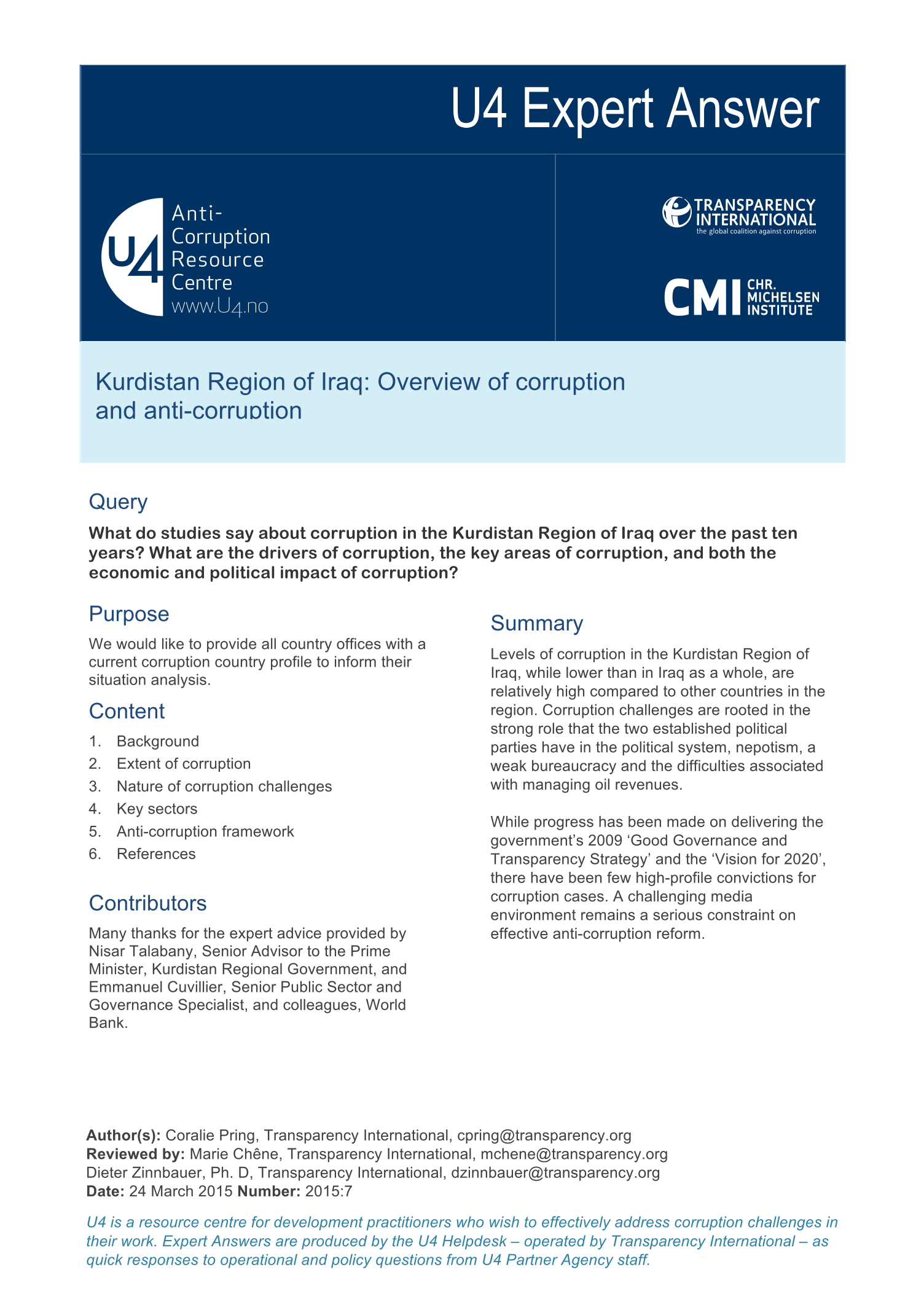U4 Helpdesk Answer
Kurdistan Region of Iraq: Overview of corruption and anti-corruption
Levels of corruption in the Kurdistan Region of Iraq, while lower than in Iraq as a whole, are relatively high compared to other countries in the region. Corruption challenges are rooted in the strong role that the two established political parties have in the political system, nepotism, a weak bureaucracy and the difficulties associated with managing oil revenues. While progress has been made on delivering the government’s 2009 ‘Good Governance and Transparency Strategy’ and the ‘Vision for 2020’, there have been few high-profile convictions for corruption cases. A challenging media environment remains a serious constraint on effective anti-corruption reform.

Cite this publication
Pring, C. 2015. Kurdistan Region of Iraq: Overview of corruption and anti-corruption. U4 Expert Answer 2015:7
Disclaimer
All views in this text are the author(s)’, and may differ from the U4 partner agencies’ policies.
This work is licenced under a Creative Commons Attribution-NonCommercial-NoDerivatives 4.0 International licence (CC BY-NC-ND 4.0)


